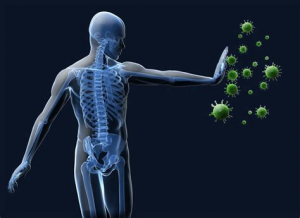
Why You Shouldn’t Neglect The Exterior Of Your Home
October 11, 2021
Rubber – A Material that Has Been Popular for Thousands of Years
October 12, 2021How does the immune system work?
The human immune system is a wonderful thing. It consists of various cells, proteins and organs and is adept at protecting a person from harmful things like pathogens and bacteria. The immune system miraculously does its job without you even realising. The only time you notice is when it isn’t working well and you become ill. Coming into contact with a germ you’ve never experienced before can also take your immune system by surprise!
The job description of an immune system is to fight germs that cause disease that come from outside of our body but also to help protect us from damaging changes that take place inside the body such as cancer cells.
The immune system jumps into action when it spots something it doesn’t recognise, like an antigen. What gets spotted are the proteins on the exterior surface of bacteria, viruses and fungi, for example. These antigens attach to receptors on immune cells and then a special chain of events is set in motion.
When a person’s immune system fails to work correctly or starts attacking healthy cells inside the body, this can be known as an autoimmune disorder. If you’d like to get involved in medical trials to help research into these conditions and many others, consider Paid Research Studies at a site like trials4us
One of the genius things about the immune system is that once it has encountered an antigen, it stores the memory of it and how to fight it so that should it encounter it again, the body knows how to fight it off.
There are actually two parts to the immune system, an innate and adaptive part but they work hand in hand. The innate immune system provides a general defence and so is known as ‘non-specific’. It’s main purpose is to counteract germs that enter through the skin or digestive system. The adaptive part is what creates antibodies in response to the fight against certain antigens that the body has come in contact with. This is known as a specific or acquired response. An example would be someone who has contracted measles will have an acquired immunity to future infections. The adaptive immune system is always learning and adapting to changing and evolving germs too.
There are some excellent ways that we can boost our immune system to give ourselves the best chance of fighting off illness. These include:
Regular exercise – exercise encourages better circulation meaning the immune system cells can move more freely around the body.
Sleep well – getting enough sleep is restorative for the body. Sleep deprivation causes a reduction in immune cells.
Eat well – eating a well-balanced diet that includes vitamins, minerals and plenty of nutrients is the best way to keep your immune system strong.
Reduce stress – stress inhibits your ability to fight off infection. Relaxation and self care is essential for a healthy immune system.
Stay hydrated – drinking lots of water is a great way to flush out toxins from the system.





